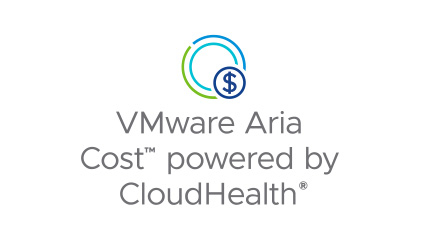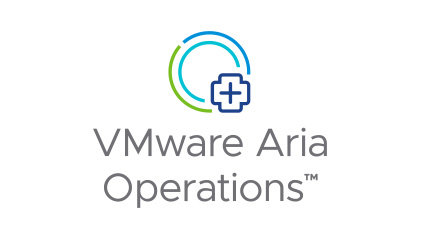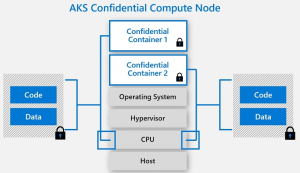
Multi-Cloud Management with VMware Aria
The Cloud and managed services market is growing at uninterrupted speed, despite economic uncertainties and focus on cost optimization in organizations. Gartner predicts the total cloud services market to grow at 20.7% to almost 600 Bln. USD this year.
With VMware Aria, we deliver true multi-cloud management based on comprehensive, near real-time visibility into application and infrastructure environments. It provides a set of end-to-end solutions for managing the cost, performance, configuration, and delivery of infrastructure and cloud-native applications across any cloud. Unlike existing solutions and cloud platforms in the market, VMware Aria offers a unified management experience with application-aware solution workflows across public cloud, private cloud, and edge. In this weekly blog series “Managed Services Monday with VMware Aria, we will discuss how to build managed multi-cloud services on the Aria solutions.
![]()
“The new Aria branding replaces three existing cloud management brands: vRealize portfolio, CloudHealth by VMware Suite, and Tanzu Observability by Wavefront.”
https://blogs.vmware.com/management/2023/04/aria-rebranding.html
Opportunity for internal and external Service Providers
For service providers, whether internal or external to the end-consumer of Multi-Cloud resources, Aria offers a way to capture the cloud and managed services market opportunity by building an end-to-end portfolio of compelling offerings. Those offerings can allow providers to both, augment and compete with hyperscale public clouds like Amazon Web Service, Microsoft Azure and Google Cloud Platform.
Customer internal service providers can make use of this portfolio to preserve their budgets, service delivery and skills in house. They do that by creating a set of services that delivers similar or higher value services to their internal clients, compared to hyperscale public clouds. In times of geopolitical uncertainties, this becomes even more important due to data sovereignty, regulatory compliance, supply chain and risk management requirements – aspects that are also comprehensively addressed by VMware Sovereign Cloud partners.
 Figure 1: Internal and External Service Provider Opportunities
Figure 1: Internal and External Service Provider Opportunities
VMware Cloud Services Providers can use the Aria portfolio to offer their own set of cloud and managed services to end-customers. Those can be based on VMware Aria software solutions running and operated in their own data center. Alternatively, providers can also leverage VMware Aria SaaS services and focus on value-added and managed services, instead of operating the base cloud services and solutions.
 Figure 2: Managed Multi-Cloud Business Model
Figure 2: Managed Multi-Cloud Business Model
Shared Responsibility Models for Managed Services
Within this blog series, we will look at managed services that can be built on VMware Aria. We then compare them with other offerings in the market, for example from public clouds. Even more important, we will look at value-added services that customers might be looking for from their trusted internal or external providers. For this, it is important to understand the various consumption models that end-customers and cloud consumers can choose from in the market, as well as their respective demarcation lines between the provider and the customer in a shared responsibility model:
 Figure 3: Comparison of shared responsibility models between customer and service providers
Figure 3: Comparison of shared responsibility models between customer and service providers
From the end-customer perspective, the hardware, cloud operations and required management tools are always outsourced; Depending on the cloud model either to the public cloud provider, an internal service provider or a VMware Cloud Service provider.
Configuring the individual cloud services is the customers’ responsibility in hyperscale public clouds. Internal Service Providers will typically take over this task for customers. VMware Service Providers, on the other hand, may give customers the choice between managed cloud infrastructure services and self-service. Similar models are common when building an integrated set of management tools for the various underlying cloud services. In all models, the respective provider will run and operate the different management tools. For example the VMware Aria suite of tools covered in this blog series, or proprietary hyperscale public cloud management tools. And while these tools come with a certain degree of integration amongst one another, there may be additional custom integration, for example between different services or with 3rd party tools, that may be the responsibility of the end-customer or may be outsourced to the provider, too.
The biggest differences lie in the management and optimization of the platform, as well as the application layer. Common management tasks include checking compliance, uptime and security, cost and performance optimization. These are the responsibility of the customer in hyperscale public clouds. Internal service providers may take over the management responsibility of keeping the platform running in a secure and compliant way. Cost and performance optimization may be left to the end-consumer in certain cases. VMware Service Providers offer a wide range of managed, value-added and self-service options. This also depends on the degree of autonomy the customer requires.
VMware Aria Solution Overview
The focus of this blog series is on the VMware Aria Management suite and the managed and value-added services that can be delivered by service providers through these solutions. Lets start by understand the main VMware Aria solutions:
 Figure 4: VMware Aria Solution Overview
Figure 4: VMware Aria Solution Overview
Internal and external service providers can deliver services with VMware Aria in four main areas:
 |
VMware Aria Cost to deliver comprehensive visibility, optimization, and governance for cost and usage across clouds. |
 |
VMware Aria Operations to provide full-stack visibility, troubleshooting, insights and remediation for application and infrastructure performance. |
 |
VMware Aria Automation to automate and configure application and infrastructure deployment and enforce cost, security and performance using best practices. |
 |
VMware Aria Hub, powered by Aria Graph, is a multi-cloud management platform with integrations across the VMware Aria portfolio that enables providers to address and solve end-to-end problems that cut across management disciplines and clouds. |
Managed Services Opportunities
Let’s break this down into more detail to understand the opportunity. VMware Aria allows service providers to build and offer a range of managed services and value-added services. And they can deliver those services across different clouds, including hyperscale public clouds. Grouped by solutions, these are for example the following:
 Figure 5: Managed Services catalog on VMware Aria
Figure 5: Managed Services catalog on VMware Aria
An important aspect of building a successful managed services business from these solutions, is the incorporation of DevOps practices. The services delivered by any given service provider should be developed and operated with DevOps principles in mind to fulfil customer requirements in an agile and scalable way. This is fully supported by VMware Aria. We will consider and elaborate on these aspects in demos and the subsequent blog posts for each service.
Stay tuned for a series of weekly blog posts on how to build managed services with VMware Aria. Learn how they compare to hyperscale public cloud offerings and deliver value to end-customers in the areas of:
- Cloud Landing Zones
- GitOps
- Managed Infrastructure
- Managed Applications
- Managed Networking
- Managed Security
- Cloud Financial Management
- End-to-End Visibility
If you want to learn more about how to build a managed services business, please out to your account team.


